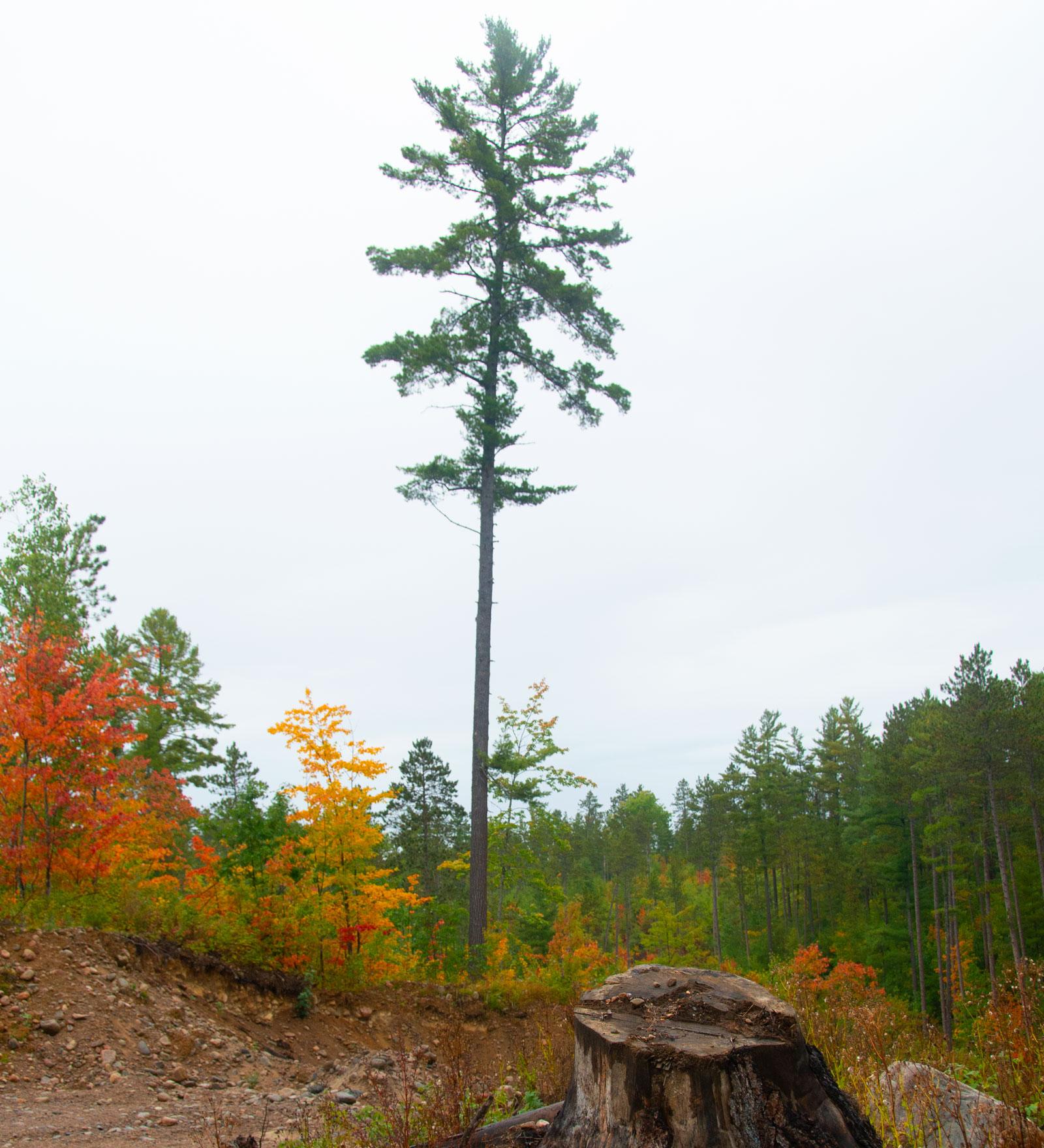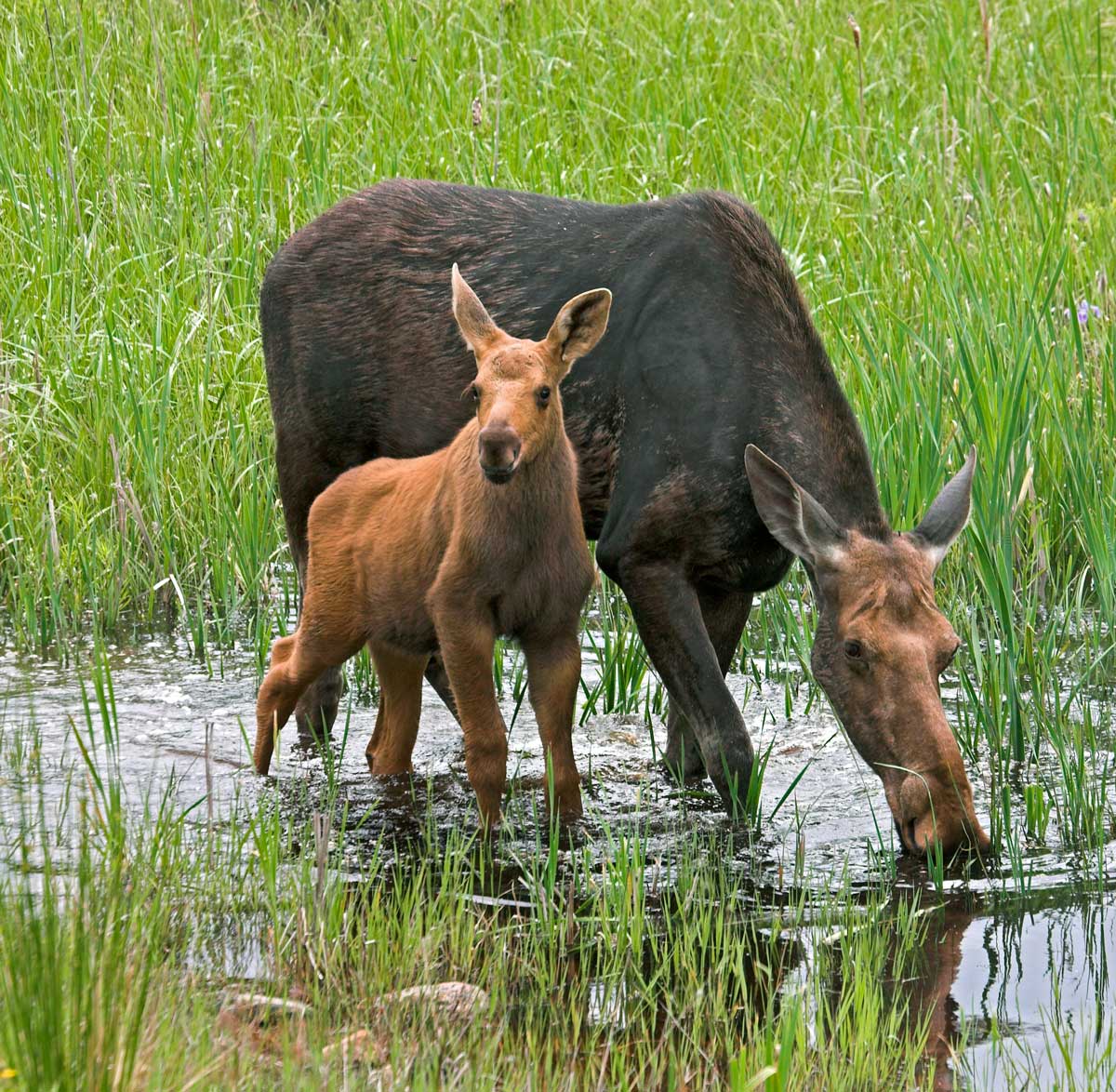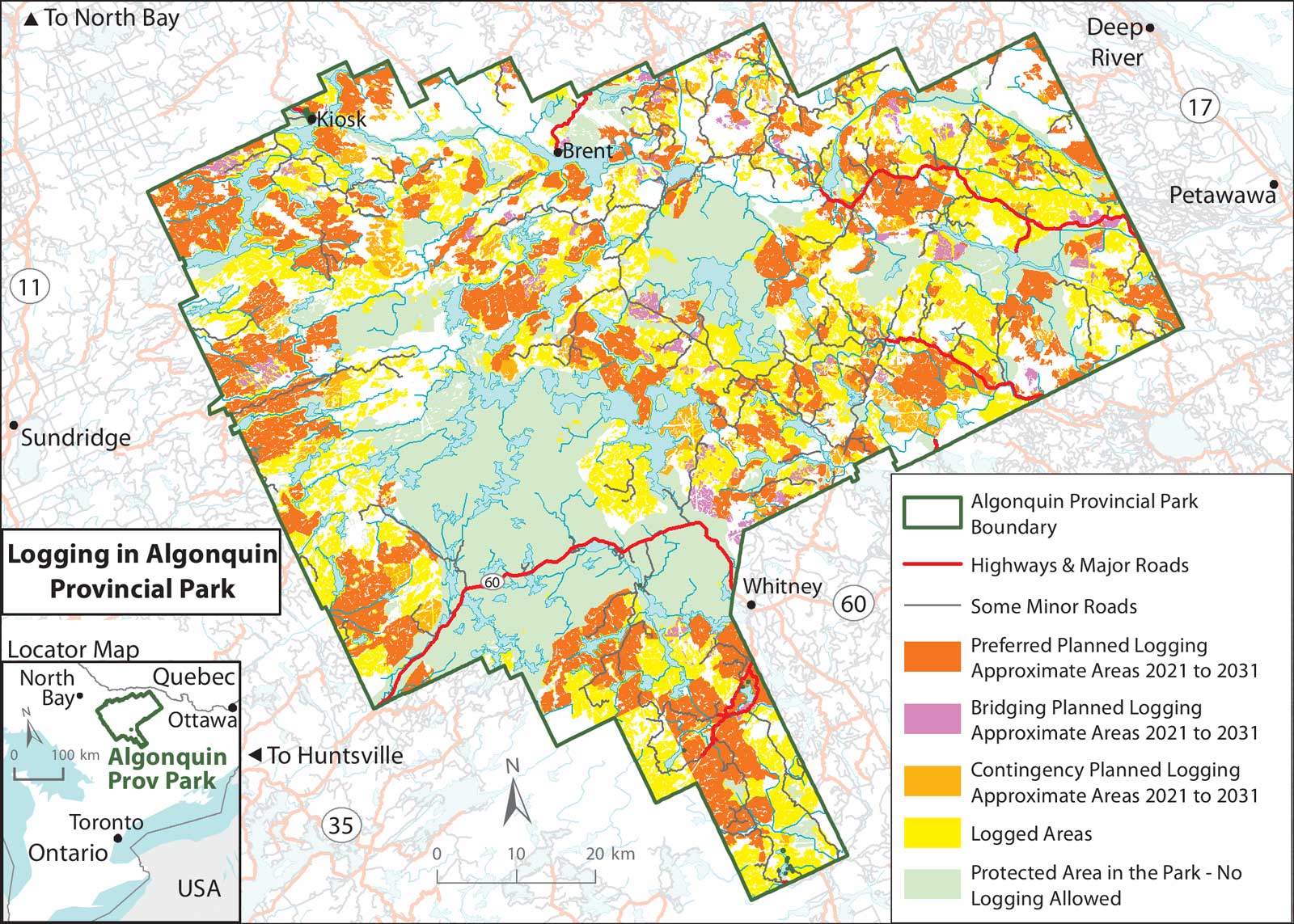Whats Up with Algonquin?

When most people think of Algonquin Provincial Park, images of sparkling lakes, towering trees and glimpses of moose come to mind. Situated in the heart of Algonquin territories, nature here has attained iconic status. To many, the word “park” implies the highest level of ecological protection — which is why it often comes as a shock that 65 per cent of Algonquin parklands are open to commercial logging. Logging is incompatible with a protected area. Even the most careful operations can threaten species at risk and other ecosystem values.

Did You Know?
- Over 5,000 km of logging roads dissect Algonquin’s ecosystems, and more are built every year. This is equivalent to all of the roads in Toronto!
- Gravel mining for road-building is also allowed in the park, to the detriment of woodlands, wetlands and animal species such as brook trout.
- In 2006, the Ontario Parks and Conservation Act stated the primary goal of parks is the “permanent protection of representative ecosystems and biodiversity.” That is why logging is outlawed in all other provincial parks.
- Algonquin contains 40 per cent of old-growth forests in central Ontario while occupying only four per cent of the land. Twenty-four thousand hectares of old forest in the park is unprotected. Old-growth ecosystems are essential for fighting climate change through carbon storage. They are habitat for wildlife such as American martens and many songbirds.
“Much of the debate around Algonquin Park’s management to date has been focused on the issue of whether logging in the park is “sustainable.” However, there is a fundamental distinction between logging sustainably and maintaining the ecological integrity of a protected area… the government has never allowed public consultation with regard to if Algonquin Park should be logged, only where and how much.”
— Gord Miller, former Ontario environmental commissioner, from 2014 report
In a time of twin climate and biodiversity crises, the science is clear: we need to protect more nature. The Canadian government has committed to international targets of protecting 25 per cent of lands by 2025. Still, only 10.7 per cent is currently protected. Ontario is a laggard. Help us end logging and achieve true protection for all of Algonquin Park.
What will it take to protect Algonquin Park?
- Public awareness and support: Most Canadians, Ontarians and Algonquin Park visitors are unaware of the extent of commercial logging in the park. Recreational tourism provides huge economic, cultural and social benefits. Help us challenge the forestry lobby’s stranglehold on the fate of Algonquin nature. Add your voice using the action tool link below to write to tell key politicians you support true protection.
- A review of Algonquin Park management plan: Ontario requires provincial park plans to be reviewed, with public consultation, every 20 years. Algonquin’s plan was last revised in 1998, meaning a new plan is three years overdue. This process would be an opportunity for a full environmental assessment of the impacts of logging on Algonquin ecosystem diversity — as recently recommended by the province’s auditor general.
Algonquin Park sits on the territory of many Algonquin nations. A review of the park plan is a much-needed opportunity for land-based reconciliation and to explore traditional ecological knowledge connected to the stewardship of this land, such as fire management.

“Two-thirds of Algonquin Provincial Park does not meet criteria for a protected area because of commercial logging. If [all of the park did meet criteria], it would increase the total provincial protected area coverage by about 0.5 per cent.”
— Ontario Auditor General 2020 Value‑for‑Money Audit: Conserving the Natural Environment with Protected Areas
What can you do?
Share this publication with family and friends.
Write Ontario Premier Doug Ford, Minister of the Environment, Conservation and Parks David Piccini, and the Opposition Critic for the Environment Sandy Shaw to support full protection for Algonquin Park.
Donate to our campaign to protect the park.